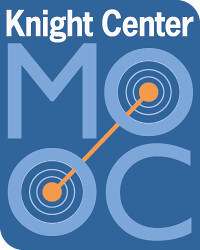Start learning today!
Get early access to learning opportunities from Journalism Courses by the Knight Center.


journalists who squirm at the thought of data calculation, analysis and statistics can arm themselves with new reportin
g tools during the new Massive Open Online Course (MOOC) from the Knight Center for Journalism in the Americas: “Math for Journalists Made Easy: Understanding and Using Numbers and Statistics” will be taught from June 1 to 28, 2015.

“Math is crucial to things we do every day. From covering budgets to covering crime, we need to understand numbers and statistics,” said course instructor Jennifer LaFleur, senior editor for data journalism for the Center for Investigative Reporting, one of the instructors of the MOOC.
Two other instructors will be teaching this MOOC: Brant Houston, a veteran investigative journalist who is a professor and the Knight Chair in Journalism at the University of Illinois; and freelance journalists Greg Ferenstein, who specializes in the use of numbers and statistics in news stories.
The three instructors will teach journalists “how to be critical about numbers, statistics and research and to avoid being improperly swayed by biased researchers.” The course will also prepare journalists to relay numbers and statistics in ways that are easy for the average reader to understand.
“It is true that many of us became journalists because sometime in our lives we wanted to escape from mathematics, but it is also true that it has never been so important for journalists to overcome any fear or intimidation to learn about numbers and statistics,” said professor Rosental Alves, founder and director of the Knight Center. “There is no way to escape from math anymore, as we are nowadays surrounded by data and we need at least some basic knowledge and tools to understand the numbers.”
The MOOC will be taught over a period of four weeks, from June 1 to 28. Each week focuses on a particular topic taught by a different instructor. The lessons feature video lectures and are accompanied by readings, quizzes and discussion forums.
Enrollment is open to anyone with an interest in learning more about basic use of numbers and statistics in journalism. The course is asynchronous, as there are not specific times to meet for classes. Participants may complete the course at their own pace, in their own time.
The course is free, but those participants interested can apply for a certificate upon successful completion of the course and payment of a $30.00 administrative fee. The certificate will be available for download as a PDF file and does not have any formal course credit associated with it.
Week 1 focuses on making basic calculations, like figuring out ratios and percentage changes, and is led by Brant Houston, professor at the University of Illinois.
“I’m also a journalist who’s overcome his fear and worry about math and statistics and so I welcome you to this MOOC,” said Houston, Knight Foundation Chair in Investigative and Enterprise Reporting.
LaFleur leads Week 2 and instructs on how to go beyond descriptive statistics by using measures like distributions and correlations. In Week 3, she will teach advanced statistical techniques like calculating linear regressions and correctly interpreting results.
To close out the MOOC, freelancer Greg Ferenstein leads a class on demystifying statistics, reports and academic or survey jargon. Ferenstein has written for companies like Mashable and Fast Company.
“Fortunately, you don’t need a PhD in math or anything close to be able to think critically about a study,” said Ferenstein. “You just need a few tools in understanding how academic research is done and what makes a good study versus a bad study.”
At the end of the course, students will come away with knowledge about:
The Knight Center for Journalism in the Americas is a world leader in online courses for journalists. The Center was created in 2002 by Professor Rosental Alves, who holds the Knight Chair in Journalism and the UNESCO Chair in Communication at the University of Texas at Austin School of Journalism. In the past, the Center was financed by major grants from the John S. and James L. Knight Foundation, as well from other donors, such as Open Society Foundations. Currently, the Center receives support from the University of Texas at Austin’s Moody College of Communication and donations from the public.
Get early access to learning opportunities from Journalism Courses by the Knight Center.